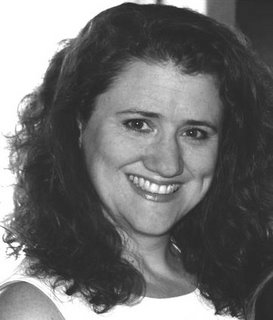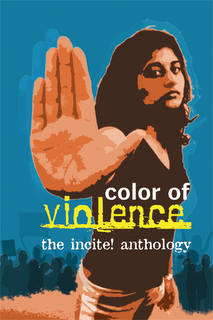 Jane Miller is the author of eight collections of poetry, including A Palace of Pearls, from Copper Canyon Press. She is currently writing a book of prose poems, Midnights, in collaboration with the painter Beverly Pepper for publication by Saturnalia Press in 2008.
Jane Miller is the author of eight collections of poetry, including A Palace of Pearls, from Copper Canyon Press. She is currently writing a book of prose poems, Midnights, in collaboration with the painter Beverly Pepper for publication by Saturnalia Press in 2008.Persephone Speaks, the name of this site, calls to mind Louise Glück’s new collection,
… the goddess of the earth
punishes the earth – this is
consistent with what we know of human behavior,
that human beings take profound satisfaction
in doing harm, particularly
unconscious harm:…
In the second poem, Ms. Glück, a woman of fierce intelligence – fierce, from the Latin, ferus, wild, savage – writes:
Winter will end, spring will return.
The small pestering breezes
that I so loved, the idiot yellow flowers –
Spring will return, a dream
based on a falsehood:
that the dead return.
When two people run into each other after a long silence, and one says, “How are you?” the world, according to a dear friend of mine, is then divided into those who say, “I am shopping for ripe plums,” and those who will tell you, or begin to tell you, an entire life story from your last meeting until this chance moment. Who of the two is Louise Glück?
(Can one say? Why ask?) I believe the speaker of the poems in Averno is avid about her circumstance, her day (her moment, actually), but she is not the “plum woman”; rather, is impatient, anxious, maybe with some prior hurt on her mind, angry, in another realm of persistence. It is in this other realm where Ms. Glück is able to see context and legend, history and mythology, together, uncomfortably, but together.
The “plum” moment in a novel, for example, say, Mrs. Dalloway picking out her flowers, is Virginia Woolf’s having it both ways, the moment and the backdrop of the drama. The character is in the lilies, and the novel inhabits history. Glück, not a novelist, has elected her perspective. Our greatest poet of psychic, analytical work gives emotion intellectual context. She robs the moment of its romance. She does not have an erotic, but rather a tragic, relation to the moment.
If, on the other hand, I am the plum person, I am alone; the event is a beautiful, defeated ripe plum, and then it is over. I am harmless, although nothing is harmless; at this moment, I perhaps should be speaking of raising funds to fight cancer – while seemingly harmless, I am at least not entirely without reason, and with good reason, there is some truth to be gotten from the moment. The open market. The heavy sun, already fading.
What one sacrifices, as the plum woman, is history. I mean to say (but I should be listening to a philosopher or therapist about the past, and not speaking as though I get it) I mean to say that the past has its boundaries, and it is good, it is noble to remember it. But if one relives it for the sake of the self alone, one loses the season of the sunlight, one loses the great winds burdening the awnings of the stalls. Perhaps only poets of the ecstatic or the diurnal have the novelist’s opportunity to have it both ways? I understand that Ms. Glück is listening to the lament of the soul, not of the self. Hers is terrifically clarifying language.
My other teacher in graduate school, who, bless his soul, died recently, Jon Anderson, always gave us what he termed (and wrote a poem titled) “Permission to Speak.” Meaning (I think now) to listen. But there is such chatter, such dread, such “pestering breezes.” Does participating in the immediacy of the world develop a soul? Ms. Gluck, typically, brutally clear:
My soul in love was sad
and the moon on my left side
trailed me without hope.
To such endless impressions
we poets give ourselves absolutely,
making, in silence, omen of mere event,
until the world reflects the deepest needs of the soul.
--from “Omens,” after Pushkin
Her noun “silence” signifies an exemplary space worth surrendering to, especially for those of us who love words.
Here’s Jon, speaking from his backyard, his familiar ampersand carrying his voice, his silliness, his self. Though his romance with “every living thing” may risk sounding sentimental, his philosophical intelligence achieves a consciousness beyond self-lacerating comedy or irony. Jon: now ashes landing on
Now that it's quiet in my house I can't really think
without thinking & I can't really talk without meaning
something else, so I shut up. Some days I wish I was
back at the factory, moving heavy objects & grunting.
They start out looking for a handout, then they get used to it,
the birds. What's weird is I think they don't know why
they come anymore, now that I've stopped feeding them.
Frankly, they tend to be undifferentiated & cutely stupid.
Once, when one fell off the wall, I thought I had something,
it was so embarrassed, lying there like a ruffled pompom
with a black tack for a head. Turned out it was dead.
I was so alienated I mailed it back without a stamp, but
I said this prayer for it: Bless every living thing...
…When you're alone every damn word you say has got
to be how you feel, & then you've got to live with it.
I think I'll entertain myself by not experiencing anything.
Word on the mountain is that the wabi of consciousness
is all your living minus all your accumulated experience…
-- from “Exiled on Mountain, Bewail Fate & Praise Autumn”
Jane Miller
Tucson, Arizona
November 2007



















